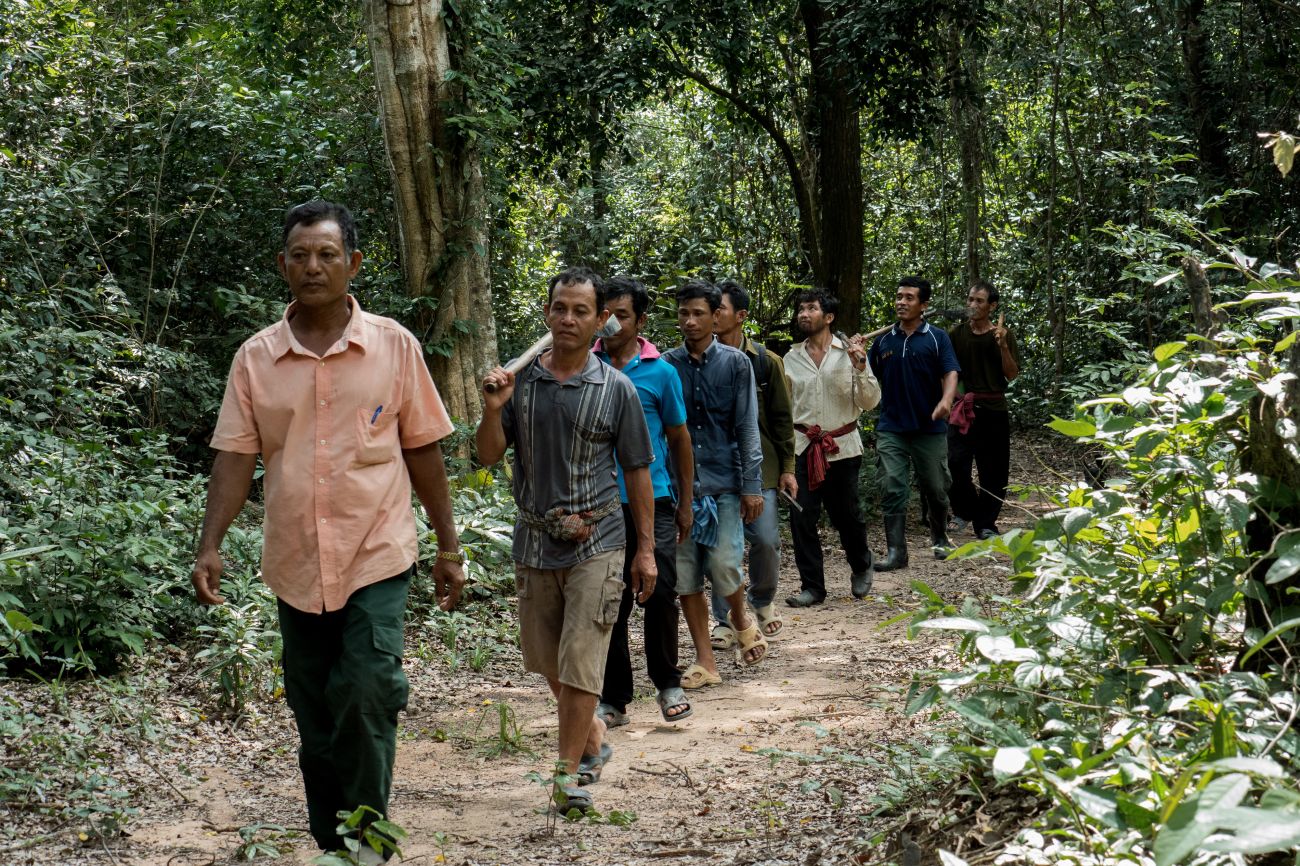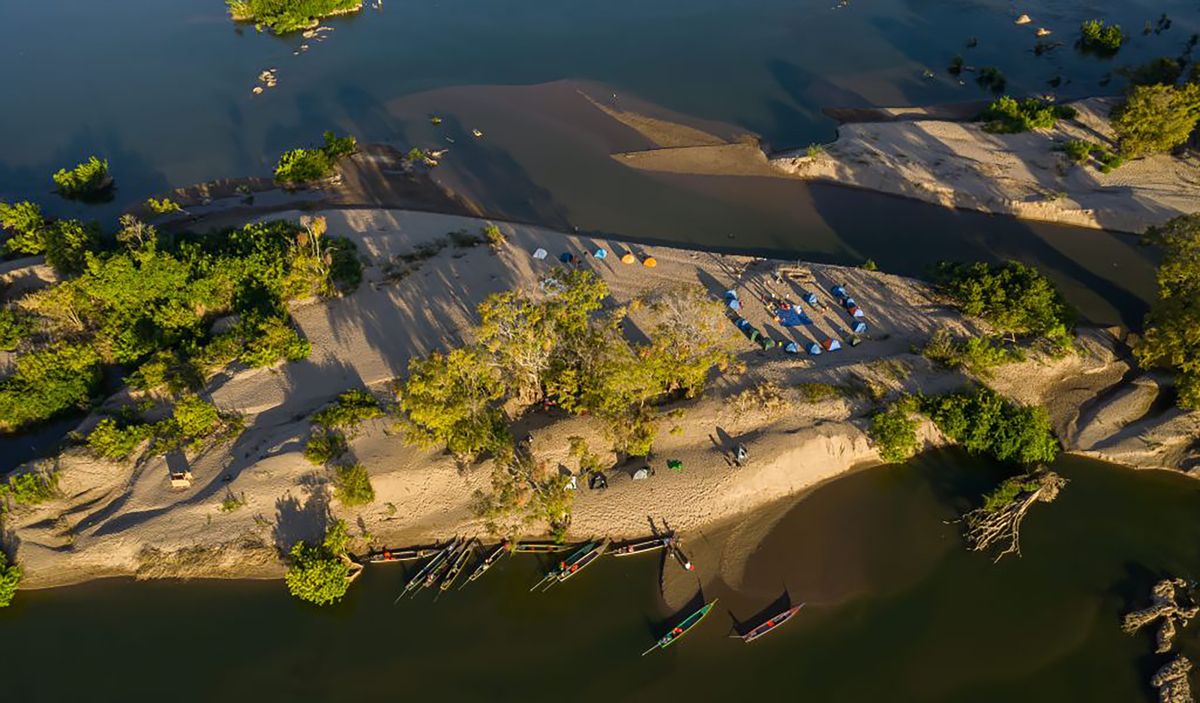

On 12 May 2022, the management committee of the Chheu Teal Prus community forest (CF) submitted a timber harvesting request letter for their CF area. The request, which was presented along with the timber harvesting plan for the CF, was approved by the Director General of the Cambodian Forestry Administration on 13 October 2022.
The approval marks the first time a community forest in Cambodia has received a formal permit to harvest timber. The related timber harvesting plan was developed by the Chheu Teal Prus CF management committee along with the Forestry Administration, local authorities and timber buyers.
Cambodia’s community forestry scheme does not have clear provisions outlining legal and technical procedures to harvest and sell timber. The resultant gap has prevented communities from fully benefiting from their forests. The approved timber harvesting request from Chheu Teal presents a model that could lead to further change.
The plan is one of several outcomes of a decade-long RECOFTC project, the Partnership for Forestry and Fisheries Communities in Cambodia (PaFF), which was implemented from November 2014 to June 2023.
Among our core PaFF engagements were those with representatives of the Cambodian Forestry Administration and local community forestry groups to draft legal and technical procedures for timber harvesting in community forests.
page break
spacing
Through financial and technical support, we provided the necessary backstopping to develop and test procedures to harvest timber legally. The pilot was led by the Food and Agriculture Organization of the United Nations, with RECOFTC as implementing partner.
“The results of this pilot project will shape revisions to the legal framework on commercial timber harvesting from community forests,” says Heng Da, Field Operation Manager, RECOFTC Cambodia. “This will ultimately have impacts across the country and strengthen incentives for communities to manage their forests sustainably. Legal timber harvesting will create a new income stream to support the management of forests and improve the livelihoods of communities.”

Over a decade-long period, PaFF was able to positively impact the lives of as many as 85,460 people from 30,172 households in rural Cambodia. In our efforts to enable local people to better manage and benefit from community forests and fisheries through the project, we helped build community and government capacity.
page break
spacing
Furthermore, we:
- enhanced rights and capacities for 120 community forests, 24 community fisheries and 11 community protected areas
- ensured significant involvement of women and Indigenous Peoples in management roles
encouraged active community-led patrolling and reporting, leading to better enforcement of laws against illegal logging and land encroachment - helped improve livelihoods through the formation of ecotourism groups and support of income-generating activities
- set up sustainable financing mechanisms including 141 credit schemes and 76 mini trust funds
- made contributions to the development and revision of 17 policies and regulations supporting community-based natural resource management.
PaFF's legacy will continue through integrated practices in daily community life, ongoing support structures like credit schemes and continued sharing of knowledge and best practices.
The project was primarily funded by the Swiss Agency for Development and Cooperation (SDC) and the Government of Sweden.
